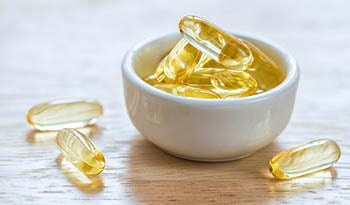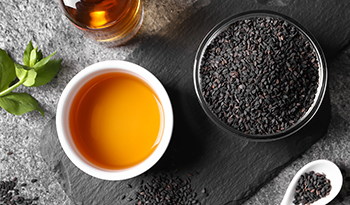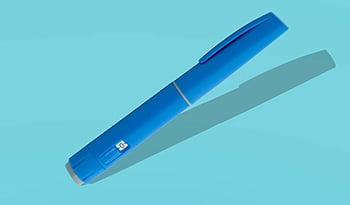Natural Tinnitus Symptoms Support

Tinnitus refers to hearing a constant ringing, roaring, clicking or hissing sound. It is extremely common as millions of people in the U.S. alone have tinnitus. People with severe tinnitus may have trouble hearing, working or even sleeping. Causes of tinnitus include hearing loss, exposure to loud noises or medicines (particularly Valium-type drugs [benzodiazepines] as well as non-steroidal anti-inflammatory drugs like aspirin and ibuprofen). Tinnitus may also be a symptom of other health problems, such as allergies, high or low blood pressure, tumors and problems in the heart, blood vessels, jaw and neck.
Treating Tinnitus with Natural Medicines
The easiest treatments of tinnitus involve identifying and eliminating the cause. If the ringing in the ear is due to long-term exposure to loud noise or music, scuba diving, or other causes of damage to the eardrum it is more difficult to treat. However, some studies have shown magnesium supplementation may help in these cases (150 to 250 mg three times daily). Other natural medicines that have been shown to be useful include:
- Zinc. Supplementation with zinc (20 to 30 mg per day) can relieve or eliminate tinnitus in those with zinc deficiency – a common occurrence in many cases of tinnitus.
- Ginkgo biloba extract. The results double-blind studies with Ginkgo biloba extract (GBE) are contradictory. People with recent-onset tinnitus are more likely to respond to GBE compared to those who have had tinnitus for at least 3 years. Dosage is 240 to 320 mg per day.
- Vitamin B12. Nearly half of patients with tinnitus are deficient in B12. Many people with low B12 levels experience complete resolution of their tinnitus when given methylcobalamin form of B12. Take 3000-5000 mcg daily for one month and then reduce it to 1000 mcg daily as a maintenance dose.
Melatonin in Tinnitus
The latest natural product showing promise in tinnitus is melatonin. In the most detailed conducted at The Ohio State University Eye and Ear Institute, sixty-one adults with chronic tinnitus were randomized to receive 3 mg melatonin or placebo nightly for 30 days followed by a 1-month washout period before switching over to the other treatment. Results demonstrated very convincingly that melatonin was associated with a statistically significant decrease in tinnitus intensity and improved sleep quality in these patients with chronic tinnitus. Melatonin was most effective in men with more severe and bilateral tinnitus and/or those with a history of noise exposure.
Researchers believe that one of the ways melatonin may be helping tinnitus is by improving sleep quality. That is an interesting mechanism of action, especially since tinnitus is often a side effect of prescription sleeping pills. Other evidence suggests that melatonin may help improve inner ear function. For example, melatonin has been shown to protect against inner ear damage caused by various drugs including antibiotics and chemotherapy agents. In one study, melatonin was shown to up to 150 times more effective in limiting the inner ear side effects of drugs than a mixture of antioxidants that included vitamins C and E, glutathione and N-acetyl-cysteine. Given that drugs are often a cause of tinnitus, it may be that anyone taking a drug that is associated with tinnitus should also take melatonin to protect inner ear function and possibly prevent tinnitus.
Melatonin and Vitamin B12
Vitamin B12 is required for proper melatonin manufacture and action. Not surprisingly, researchers have found that if either melatonin or B12 are low in the blood, that they are associated with tinnitus. If both melatonin and B12 levels are low, the association is even stronger.
Tinnitus is not the only condition linked to low vitamin B12 levels associated with aging. Several studies have found the level of vitamin B12 declines with age and that vitamin B12 deficiency is found in as high as 40% of persons aged 65 and over. The deficiency may be the result of reduced dietary intake, but a more likely explanation is as we age there is reduced secretion of a compound known as intrinsic factor that facilitates B12 absorption. Low vitamin B12 levels can be devastating at any age, but in the elderly, it can lead to significant impairment in nerve function and mental capacity. Tinnitus for many elderly folks may be the tip of the iceberg if it is related to low vitamin B12 levels.
One study published by the Royal Belgian Society for Ear, Nose, Throat, Head and Neck surgery looked at blood levels of vitamin B12 in 100 consecutive geriatric outpatients who were seen for various acute and chronic medical illnesses. They found that 11 patients had serum B12 levels at 148 pmol/L or below – the cut off for vitamin B12 deficiency; 30 patients had levels between 148 to 295 pmol/L; and 59 patients had levels above 296 pmol/L. After the initial determination, the patients were followed for up to three years. The patients with B12 levels below 148 pmol/L were treated and were not included in the analysis of declining cobalamin levels. The average annual decline was 18 pmol/L for patients who had higher initial B12 levels, but for patients with lower initial B12 levels, the average annual serum decline was much higher at 28 pmol/L.
These results indicate that measuring the level of vitamin B12 in the blood (serum cobalamin) or measuring the urinary excretion of methylmalonic acid as screening tests for vitamin B12 deficiency appears to be indicated in the elderly. Alternatively, I would recommend anyone over the age of 65 years old or a vegetarian at any age to take the active form of vitamin B12, methylcobalamin, at a dosage of 1,000 to 3,000 mcg daily. Note: this high dosage bypasses the need for intrinsic factor to aid absorption.
Vitamin B12 is available in several forms. The most common forms are cyanocobalamin and hydroxocobalamin, however, these two forms must be converted to methylcobalamin by the body and may not be the best for older people as many may have a reduced ability to convert cyanocobalamin and hydroxocobalamin to methylcobalamin. In animal models of aging, while methylcobalamin led to significant increases in lifespan, cyanocobalamin had no effect. Methylcobalamin has also produced better results in clinical trials than cyanocobalamin and should, therefore, be considered the best available form whenever specific benefits of vitamin B12 are desired.
Final Comments
There is little research on dietary factors in tinnitus – there just isn’t any money in it. That said, a new study examining data from the UK Biobank resource, a very large cross-sectional study of adults aged 40-69 living in the UK provides some interesting clues. After controlling for lifestyle, noise exposure, hearing, personality and other factors; a relationship between persistent tinnitus, defined as present at least a lot of the time, was reduced with fish consumption indicating another possible benefit from fish oil supplementation.
DISCLAIMER:This Wellness Hub does not intend to provide diagnosis...

















































































 Table of Contents
Table of Contents















